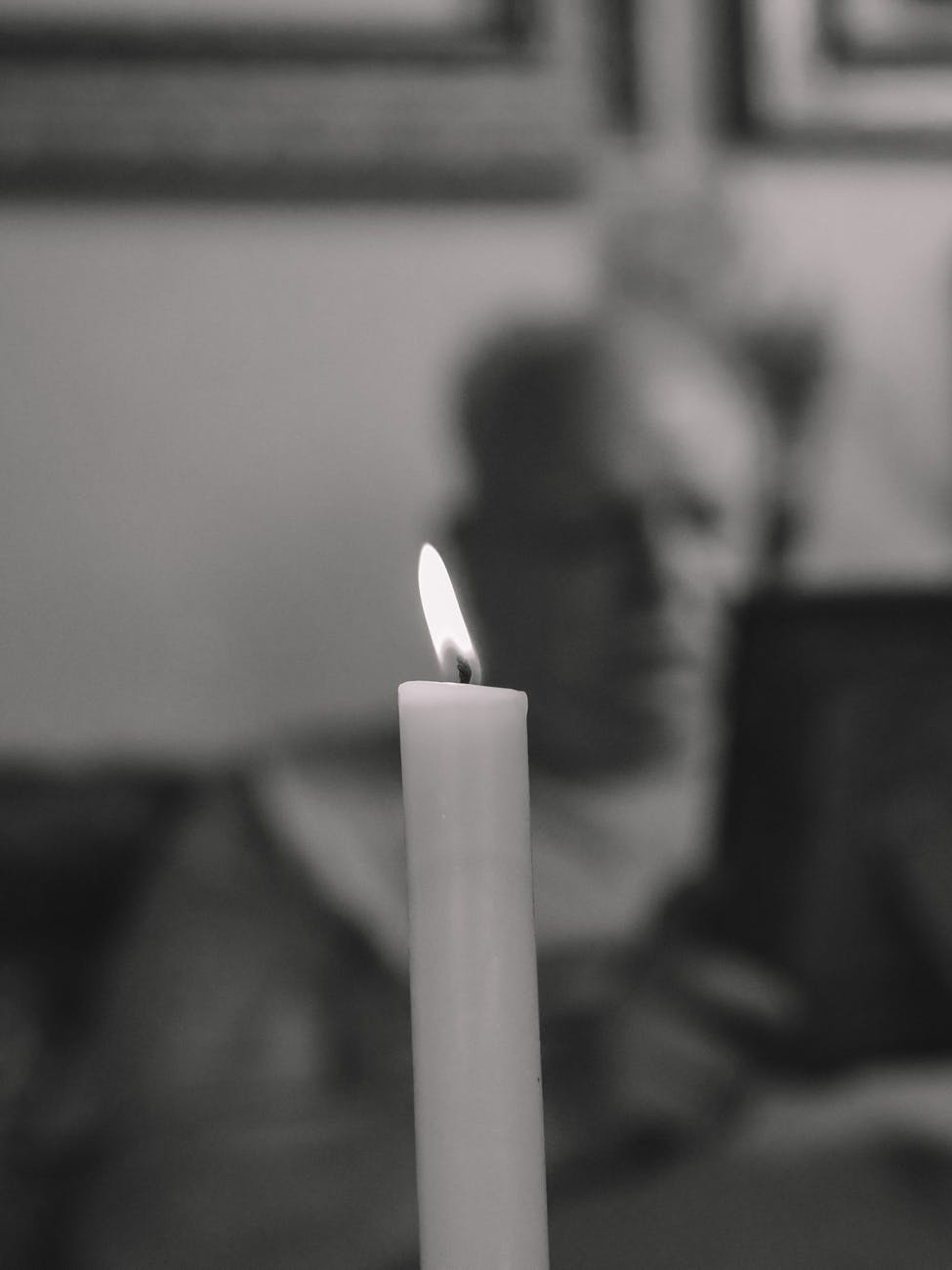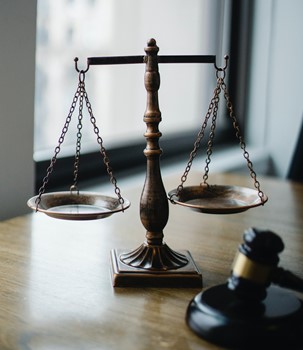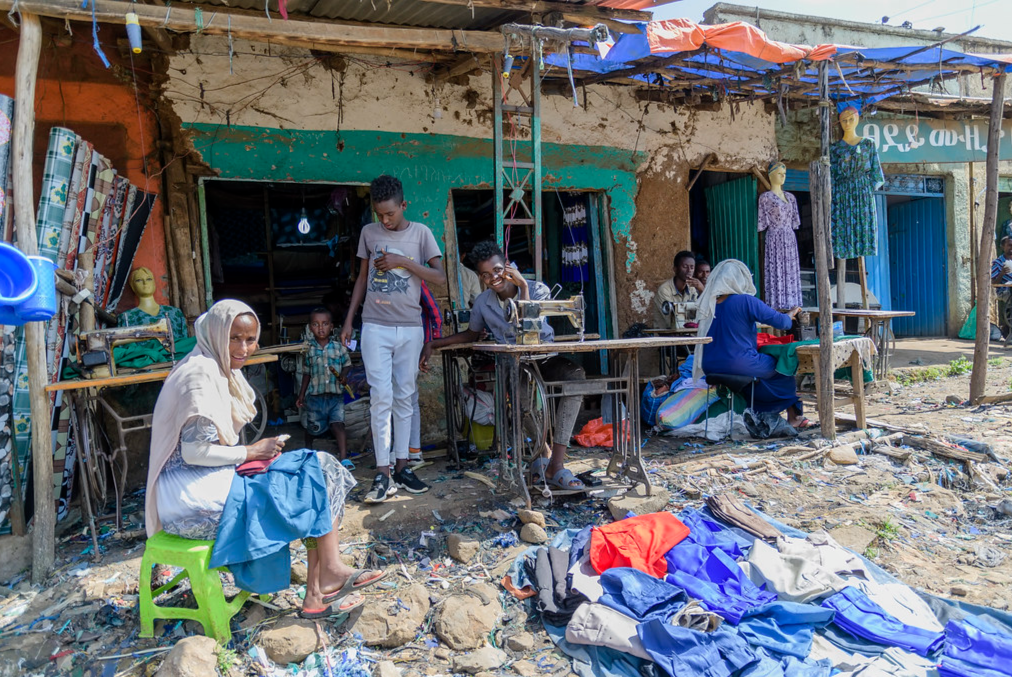The 48th Regular Session of the Human Rights Council
(13 September – 8 October 2021)
ITEM 7 – Ensuring respect for international human rights law and international humanitarian law in the Occupied Palestinian Territory, including East Jerusalem, and High Commissioner oral update on Implementation of S-30/1, followed by General Debate
Report of the United Nations High Commissioner for Human Rights on the allocation of water resources in the Occupied Palestinian Territory, including East Jerusalem
.
By: Amie Sillito/GICJ
Executive Summary
The general debate of item 7 took place on 1 October 2021 at the 32nd Meeting of the 48th Session of the United Nations Human Rights Council focused on the High Commissioner’s report on the allocation of water resources in the Occupied Palestinian Territory including East Jerusalem. The report highlighted abuses of international human rights law namely the failure to allocate safe drinking water to Palestinians as well as combative behaviour such as the destruction of water apparatus by Israeli forces, cutting off the water supply and conflicts which resulted in damage to Palestinian infrastructure.
The general debate provided parallel responses from the Council with majority of the delegates supporting the Palestinian cause and calling upon Israel to ensure safe access to water and sanitation for all citizens. Many delegates called upon the international community to denounce support for Israeli Occupation in Palestinian territory and the annexation of land. Israel’s actions were labelled hypocritical considering their statement provided under item 3 of the agenda, supporting women, peace, and diplomacy, since it has failed to safeguard the rights of Palestinian women and children.The rebuttal to these statements included accusations of states anti-Semitic behaviour, complicit behaviour by the UN and a criticism of item 7 as a direct attack on the Jewish state.
Background
Report of the Hight Commissioner on the allocation of water resources in Occupied Palestinian Territory, including East Jerusalem, and High Commissioner’s oral update on implementation of S-30/1, including the general debate.
The report of the United Nations High Commissioner for Human Rights was mandated by Human Rights Council resolution 43/32 (2020) which requested the High Commissioner to assemble a report on the allocation of water resources in the Occupied Palestinian Territory, including East Jerusalem. The High Commissioner was tasked with providing recommendations on ensuring the implementation of equitable access to safe drinking water in the Occupied Palestinian Territory, including East Jerusalem, in accordance with international law.
Included in the report are human rights monitoring activities conducted by the Office of the United Nations High Commissioner for Human Rights (OHCHR), governmental sources, and information from United Nations entities and non-governmental organizations. Israel and the State of Palestine were requested to provide information on actions taken or envisaged concerning ensuring equitable access to safe drinking water to the Occupied Territory. The State of Palestine responded, providing multiple submissions in May and June 2021 however Israel failed to respond to the OHCHR. The report exemplifies how Israeli occupation policies and practices have negatively affected the enjoyment of fundamental human rights of the Palestinian people in terms of the right to safe drinking water and sanitation in the Occupied Palestinian Territory, including East Jerusalem. The report also evaluates the Palestinian authorities’ policies in the West Bank and Gaza to ensure the same rights are upheld in accordance with their obligations under international law.
Report of the High Commissioner for Human Rights
Report A/HRC/48/43 on the allocation of water resources in Occupied Palestinian Territory including East Jerusalem.
The High Commissioner confirmed that the increase in demand for water in the Occupied Palestinian Territory was attributable to the growth of the population. Urban populations in Occupied Palestinian Territory have tripled in the past two decades contributing to a reduction of local groundwater recharge. The Israeli occupation of Palestinian territory has increased land scarcity, territorial fragmentation and urbanization, imposing restrictions on access to and control over natural resources, specifically water. Three primary sources of natural fresh water were identified in the Occupied Territory and included the Jordan River, the coastal aquifer, and the mountain aquifer. Following the Israeli occupation in 1967, all water resources were placed under its military control according to Military order 92 of 1967 which prohibits Palestinians from constructing new water installations or maintaining existing water installations without a military permit.
It was estimated that nearly 660, 000 Palestinians have limited access to water with 420,000 persons consuming less than 50 litres on average daily per capita which falls below the 100 litres recommended by the World Health Organisation. 14 000 Palestinians were identified in Area C as having no connection to a water network, no sufficient water infrastructure and are considered high risk for water scarcity. The report found that the water arrangements set out in the Oslo Accords were inequitable, partly due to the growing population but also because of practical implementation issues between the two parties. Other constraints included Israel’s reluctance to agree to projects proposed by Palestine, Palestine’s technical challenges in seeking to exploit extra resources allocated from the eastern aquifer, movement and access restrictions imposed by Israel and the Palestinian Authority’s withdrawal from the Joint Water Committee.
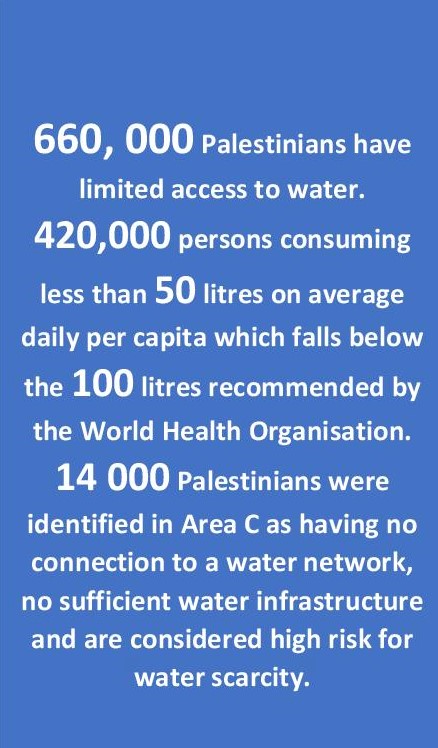
The report found that an estimated 1/3 of all water supplied to the Palestinian Authority is lost to leakage, attributable to the poor conditions of pipelines and water grids linking Palestinian Communities in the West Bank. The Palestinian Authority has blamed Israel for blocked maintenance upgrades and the limiting of the ability to increase water availability by stalling the implementation of desalination plants, advanced irrigation and wastewater recycling systems, the approval of deep well drilling and the deployment of rain harvesting cisterns. The report found that Israeli authorities also confiscated and destroyed water infrastructure, including property provided as humanitarian assistance by States.
In 2016 groundwater quality in the Westbank was reported to be acceptable however many wells in the Jordan Valley demonstrated a high concentration of chloride, exceeding the acceptable values set out in the WHO guideline of 250 mg/L. Israeli settlements and their extension into the Westbank and East Jerusalem have placed additional constraints upon limited natural resources which has further contributed to water, air, and soil pollution. This pollution including untreated wastewater was discovered infiltrating into the groundwater of the mountain acquirer which is used by Palestinian inhabitants. In response to the issue, Israel established various filtration and purification facilities to treat sewage in the Kidron Valley to make the water suitable for agriculture purposes and for the use of Israeli and Palestinian citizens. However, the project has been criticised as intended to benefit Israeli settlers.
The report identified practices and policies adopted by Israel to create a coercive environment with unbearable living conditions by placing restrictions on access to water in the West Bank. Palestinian citizens in East Jerusalem face numerous constraints in accessing water as they are linked to different water systems. Demolitions, confiscation of property and forced evictions have placed additional challenges on vulnerable Palestinians in accessing water sources. Demolitions and confiscations included mobile water tankers and hygiene facilities which impacted communities access to water. The High Commissioner noted that such actions may violate obligations of the Occupying power to restore and maintain civil life and to respect and ensure the right to water under international human rights law.
A lack of safe drinking water in the West Bank including East Jerusalem has forced Palestinians to purchase water through official providers and private entities at exorbitant rates. This has a direct impact on households’ disposable income and undermines the ability of many communities to maintain their livelihood due to increased expenditure for basic resources. Communities who lack access to a sustained water supply are especially vulnerable to health crises such as the COVID-19 pandemic. The 2020 water cut in Masafer Yatta impacted around 1,400 people, including children, from accessing water and adequate hygiene practices during the COVID-19 epidemic and Israel’s actions possibly worsened the risk of contracting the disease.

The water quality in Gaza is of such low standards and it is generally considered unsafe for drinking. Under the Oslo accords Israel is required to supply Gaza with at least five MCM per year. The Palestinian Authority purchases this water from the Mekorot which streams it through the existing network which gets mixed with ground water which is not fit for consumption. Restrictions on the use of water, land and the importing of materials and technologies affect farming practices since the ability to use irrigation is limited and farmers are forced to use excessive chemical fertilizers and pesticides to increase crop yields.
What is more, these chemicals then flow into aquifers along with sewage and create water borne diseases. These chemicals which include nitrates infiltrate the water supply which stunts children’s growth and affects brain development, impacting health and creating life-long consequences.
Consistently high levels of nitrates cause cyanosis, harm pregnant women, and increase the risk of cancer. Water associated diseases account for approximately 26 percent of childhood diseases in Gaza. A combination of poor clean water supply, limited hygiene practices and insufficient water treatment risk further outbreaks of diseases. Majority of the population rely on public filling points or unsafe tap water as they cannot afford to buy safe drinking water. Consequently, they become high risk candidates of waterborne diseases which is seen consistently in children under five.
General Debate
At the beginning of the meeting, the High Commissioner presented her report followed by the general discussion at the meeting.
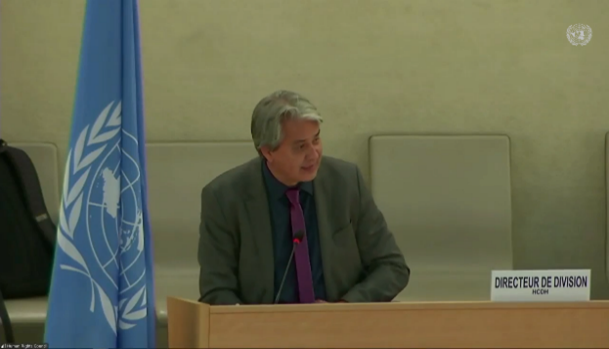
The High Commissioner highlighted that at least half the population in Gaza is in need of water and sanitation interventions and 96% of households receive water that does not meet drinking water quality standards. He emphasised the destruction of water apparatus by Israeli forces, water shortages and power outages contributed to the worsening situation in Gaza. The High Commissioner emphasised that the interim agreement between the Gaza strip and the West bank, Oslo II, remains inequitable and inadequate to meet the needs of the population. He concluded by urging all parties to take steps to implement the recommendations included in the report.
The High Commissioner proceeded by delivering an update on the resolution s30/1 which urgently established an ongoing, independent international commission of inquiry to investigate in the occupied Palestinian territory including East Jerusalem and Israel, all alleged violations of international humanitarian law and abuses of international human rights law leading up to and since April 2021. The High Commissioner noted that as of July 22, 2021, The President of the Human Rights Council appointed Miss Navi Pillay as chair of the commission.
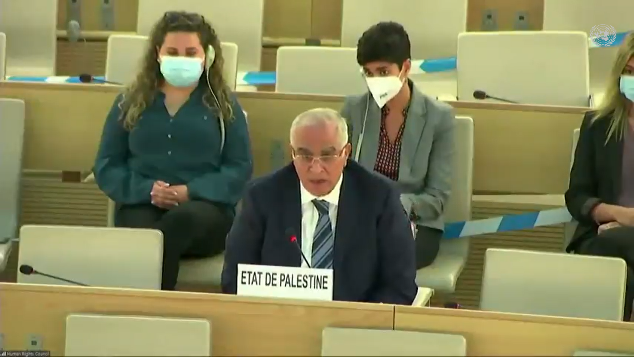 The president of the Human Rights Council opened the general debate under item 7 by giving the floor to Palestine. The delegate for Palestine emphasised that the water share available to Palestinians was in disequilibrium to that provided to the Israeli population. Water apparatus destruction and daily reprisals against sacred sites, perpetrated by Israeli forces and settlers are widespread in the West Bank including East Jerusalem. He stated that the confiscation of territories and resources by Israeli settlers, are ever increasing with the protection of the Occupying Power. The 13-year blockade of Gaza has prevented reconstruction efforts and slowed down the provisioning of vaccines during the COVID-19 Pandemic and is viewed as a systematic apartheid policy. The delegate emphasised the suffering of Palestinians in light of Israeli sympathisers and their right to defence and stated that the occupation in Israel must end in order to preserve Palestine’s right to self-determination.
The president of the Human Rights Council opened the general debate under item 7 by giving the floor to Palestine. The delegate for Palestine emphasised that the water share available to Palestinians was in disequilibrium to that provided to the Israeli population. Water apparatus destruction and daily reprisals against sacred sites, perpetrated by Israeli forces and settlers are widespread in the West Bank including East Jerusalem. He stated that the confiscation of territories and resources by Israeli settlers, are ever increasing with the protection of the Occupying Power. The 13-year blockade of Gaza has prevented reconstruction efforts and slowed down the provisioning of vaccines during the COVID-19 Pandemic and is viewed as a systematic apartheid policy. The delegate emphasised the suffering of Palestinians in light of Israeli sympathisers and their right to defence and stated that the occupation in Israel must end in order to preserve Palestine’s right to self-determination.
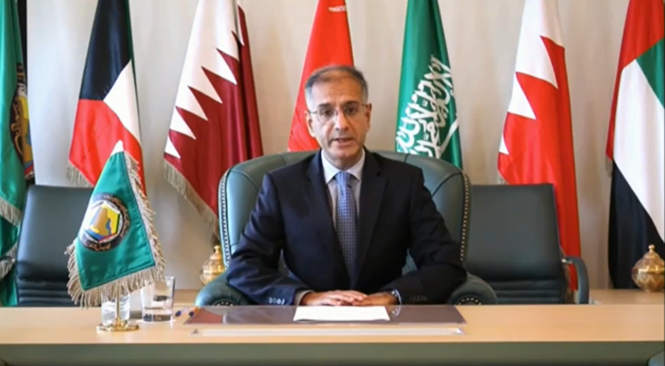
The Gulf Cooperation Council pledged their support for Palestine and the realisation of Palestinian sovereignty. The delegate urged Israel and Palestine to resume the peace process talks to achieve stability. The Council went on to condemned violations against Palestinians and called for harassment to cease in order to achieve lasting peace in the region.
Cuba and the Russian Federation reiterated that human rights violations carried out against Palestinians continue to deteriorate and go unpunished. The delegations emphasised their firm rejection of unilateral actions that foresee the creation of one state and disregard the two-state solution. The Council was urged to keep item 7 on its agenda and the delegate requested Israel withdraw from the Syrian Golan back to the line of the 4th of July 1967. The delegate for Cuba concluded that the state condemns annexation plans of Palestinian territories in the West bank which would increase the risk of conflict and undermine peace processes.
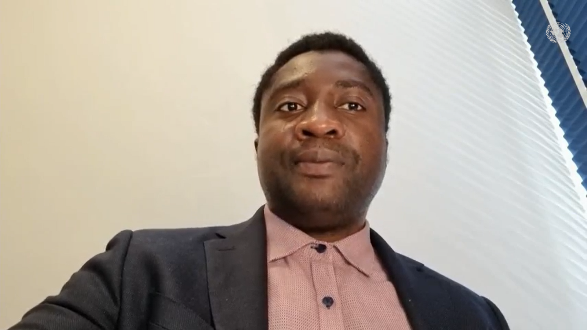
Namibia labelled Israel’s actions hypocritical after the country provided a statement on women, peace, and diplomacy under item 3 of the agenda, considering it has neglected to uphold and protect women and children’s rights under their occupation in Palestine. The delegate called upon the occupying power to end human rights violations in the occupying Palestinian territory and to hold perpetrators accountable. He stated previous calls for such action have not yielded any results since Israel continues to ignore such requests from the international community.
It was stated that 97% of Gaza’s water is contaminated due to the electricity crisis which stifles operation of water wells and sewage treatment plants. It was revealed that 12% of deaths of young children are attributable to intestinal diseases due to contaminated water. The meeting concluded by delegations urging Israel to fully guarantee Gaza’s right to water security, effective immedicately.
Position of Geneva International Centre for Justice
Geneva International Centre for Justice (GICJ) emphasises the obligations placed upon the occupying power in ensuring access to water and sanitation for all Palestinians. We welcome the High Commissioner’s report and the recommendations provided to Israel to redress the water crisis in Palestine. It is imperative that Israel respect the fundamental rights of the Palestinian people and cease all violations committed against them.
The right to water and sanitation is a fundamental human right under resolution 64/292 of the United Nations General Assembly which must not be denied to any country. Tristan Arlaud from GICJ delivered a joint oral statement with Meezaan Center to condemn the use of water as a tool of domination in the region. As highlighted in the report, Israel last bombing campaign in the Gaza strip led to severe restrictions in access to drinking-water. Such should alarm the international community.
Further to this, we remind the government that combative actions such as these constitute a breach of international human rights law. We hereby call on the international community to take all necessary measures to implement all UN resolutions to end the continued Israeli occupation and support the Palestinian people to achieve their inalienable right to self-determination. We reiterate that all actions restricting access to water and sanitation are inhumane, depriving the Palestinian population of an essential entitlement to the realization of all human rights according to General Assembly resolution 64/392.
Click here to watch the full statement
Justice, Human rights, Geneva, geneva4justice, GICJ, Geneva International For Justice
Previous Reports from the 48th Session of the UN Human Rights Council





